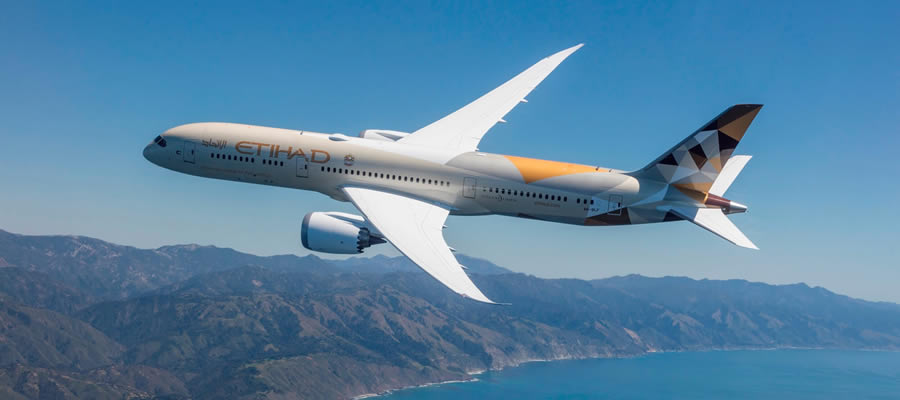During 2023, Etihad Airways achieved a 45.3% improvement in passenger carbon intensity compared to its 2019 baseline, thus resulting in a carbon intensity of 475 grams of CO ₂ per revenue tonne kilometre (RTK) for passengers, the airline’s 2023 sustainability report found.
The Abu Dhabi based airline published its annual environment report on November 28, 2024, which details the carriers progress towards its environmental goals.
Etihad's strategy aims to reduce emissions through industry-specific actions, adhere to voluntary roadmaps and frameworks, collaborate with UAE's industrial partners, maintain transparency and proactivity on environmental issues, and continuously update its strategic targets.
Etihad’s chief executive officer, Antonoaldo Neves commented on the report, citing the airline’s focus on environmental strategy "We remain focused on a strategy that supports change, growth, and economic development. We believe that sustainable aviation development is achieved through many small efforts combined.”
He added: “Rapidly phasing out fossil fuels in aviation is extremely challenging and requires a complete industry redesign. This transformation will occur gradually over time. With air travel expected to continue growing, we are committed to balancing carbon reduction with commercial demand to meet future needs responsibly.”
The report highlights that Etihad reduced over 35,000 tonnes of CO₂ emissions through optimised planning, equating to a savings of over 11,000 tonnes of fuel.
Sustainability efforts additionally included the removal of 233 million single-use plastic items, planting 182,000 mangrove trees under the “Etihad Mangrove Forest project”, and implementing water-saving aircraft dry wash methods. The airline also reported an 8% reduction in cost per available seat kilometres as well as a modern fleet averaging 7.5 years.

